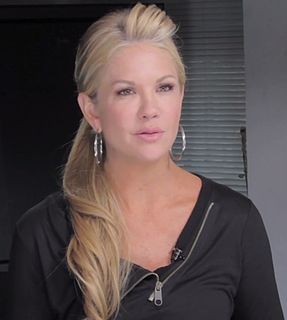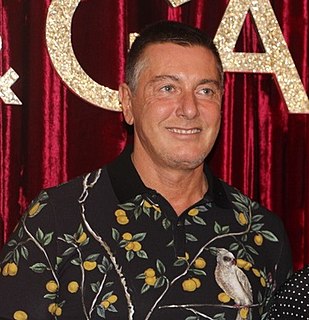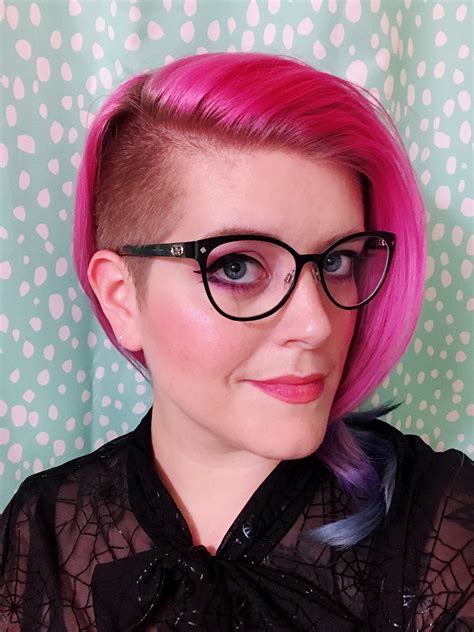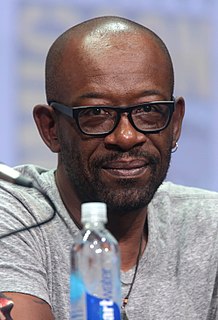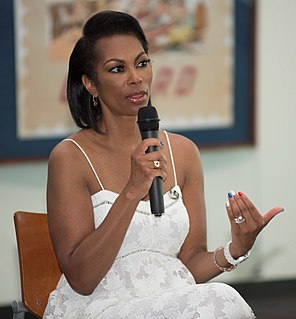A Quote by Stephen F. Lynch
The one thing that I have been struck with, after coming here to Congress is, how many people in Washington, D.C. talk about job loss like they are talking about the weather, or a natural disaster like an earthquake.
Related Quotes
Language is such a powerful thing. After the earthquake, I went to Haiti and people were talking about how [they] described this feeling of going through an earthquake. People really didn't have the vocabulary - before we had hurricanes. I'd talk with people and they'd say, "We have to name it; it has to have a name."
The impact of the earthquake on mental health was huge and unimaginably deep in people's lives. Some lost all benchmarks and references because of their great loss, we still have people coming to clinics with mental health problems related to the earthquake. They talk about the earthquake, about being under the rubble.
The thing I always guard against when I'm talking to people I'm working with about a script is that there's a thing I don't like and it's called "talk story." It's when you're talking about the story; the characters are tasked with talking about the story instead of allowing the audience to experience the story.
I do a lot of work with the Red Cross, too. As a reporter, before I went to entertainment news, I tended to follow natural disasters. I went to Charleston, South Carolina, after Hurricane Hugo. I went to Miami the year after they were recovering from Hurricane Andrew. I came to California when they were recovering from a big earthquake. I've seen the Red Cross and how they stay there years after a natural disaster. They're not just there when a disaster is happening.
I never talked about homosexuality with my family. After I was 18, they know everything, but I never talk; it was like an information but in silence. I start to talk when I was 32, it was good for me - it was like a liberation. I'm talking about a love story. I'm not talking about sex because love is love.
I feel like talking to people who don't tour, when you talk about touring - obviously we're super blessed and very lucky to be doing what we do - but there are so many weird things that could never happen anywhere else. When I talk to people who don't tour they look at me like I'm being bratty and complaining about this job that I have. It's not that! It's the fact that when I'm home I can exercise every day, I can cook myself good meals, then when I'm on the road for a long time it's like, "There's a Subway. I guess I'm eating a bowl full of lettuce because I don't eat McDonalds."
At AT&T, I learned an awful lot about people, and how important it is to have the right people in the right jobs. And when I say 'right people,' I'm not talking about their college degree or work history; I'm talking about things like bearing - How does this person interact with other people? Can he or she talk to you and not tick you off?
I'm friends with a lot of writers and so many of them say how much they hate signings and how they leave after a certain period of time. But what is so hard about sitting there while people tell you how much they love you? And if you don't like it, well, learn to like it. I try to take one person at a time. I never look down the line to see how many more people are left. And I always try to make people talk about something besides whatever they planned to say.
Interesting thing that is happening in American society is that people are starting to talk about money. I don't know how you feel about this, but for a long time, nobody was talking about money. It was a secret. And it's kind of very interesting because we do lots of stuff to portray to people about how much money we have, the clothes we wear and the cars we have and the house - they all kind of depict to other people, signal how much money we make, but we don't talk about it specifically.





